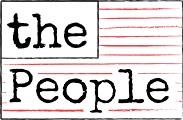Civics U: Rights
….inalienable rights, right to life, right to choose, parental rights, divine right, bill of rights, civil rights, water rights, fishing rights, animal rights, property rights, consumer rights… Rights are important, even central in our legal systems and in our social systems and relationships.
What are ‘rights’? What kinds of rights are there? Where do rights come from? Are all rights ‘inalienable’?
Americans have many rights and freedoms – perhaps more than people in any other country. How did this come to be? And what is the situation today in this regard?
How did this come to be – a bit of history
In past eras many societies in the world were ruled by aristocratic monarchies in a centralized power structure (as some today are still ruled by monarchs or dictators). This was the case under kings in Western Europe, under various emperors and dynasties in China and Korea, and under chieftainships in Africa. (This does not mean that people were never involved in self-governance in local villages and towns and clans.)
But in ancient Greece the right to vote, and under early Roman law the right to vote, the right to own property, the right to a fair trial, and other rights were provided for freeborn man. Similarly, the Magna Carta of 1215 and later revisions protected the rights of the elite classes – barons and other property owners.
In other words, various rights were established but only for certain citizens or persons. Only later did these rights and privileges become established for all citizens in the American system. But this was accomplished in steps.
One force was the Puritans’ insistence on their right to worship according to their conscience in obedience to God without approval of any monarchy. In this case, the people’s rights (freedom of religion) were rooted in a duty and obligation. One might compare this today to parents’ duty to teach their children being also the basis of their right to teach their children.
The Iroquois Great Law of Peace also influenced thinkers like Benjamin Franklin and Jean Jacques Rousseau. According to The American Indian Law Review in the article, The Iroquois Great Law of Peace and the United States Constitution: How the Founding Fathers Ignored the Clan Mothers, it “provided for federalism, separation of powers, equitable distribution of wealth, accountability of elected officials, freedom of assembly, speech, and religion, and a system of natural rights…“ It also provided certain rights for women, but these were not used in the U.S. Constitution.
But establishing equal rights for all people took some time. In spite of the elimination of slavery after the civil war, pockets of slavery continued for a time, and the Civil Rights Act was passed only in 1965. American Indians did not receive citizenship until 1924, and in some states were not granted the right to vote until 1957. The Chinese Exclusion act of 1882 which prohibited the immigration of Chinese laborers stayed in force until 1943 when it was repealed by Magnuson Act.
But the idea of rights for all took root. The Universal Declaration of Human Rights adopted by the U.N. General Assembly in 1948 surely drew on and reflected ideals found in the U.S. Constitution and Bill of Rights.
Reflecting on Rights
Where do rights come from? From God? from Government? From the intrinsic nature of human nature? The founding fathers (though not all colonists) generally believed that rights were inalienable because they were given by God. President Ronald Reagan later affirmed such a view in a speech in 1983, saying “Freedom prospers when religion is vibrant and the rule of law under God is acknowledged. How do people today, many of whom claim no affiliation with organized religion, think about this?
We are conscious of our rights, especially when they are violated. At the same time the people as or through the Government have certain rights, including the right (or at least the power) to compel people to do certain things. Think taxes. And speed limits. And vaccinations. And attending school. This writer’s grandfather believed strongly in education, but he did not believe in compulsory attendance. He thought that requiring youth who did want to be there to attend only slowed down the more motivated students. The Constitution, the Bill of Rights, and various laws spell out our rights and also the limitations on certain rights and privileges.
A right or a privilege? Driving is a privilege, not a constitutional right. What about the right (?) to drink beer, to own a gun, to marry, to make decisions about one’s own body. (Historic theology holds that our bodies are not our “own”, that they belong to the Lord.)
The right to life, liberty, and the pursuit of happiness requires and provides for freedom of thought, conscience, religion, and action. And what about the rights of the poor? Can finances and economics affect one’s ability to exercise one’s rights?
And, oh yes, it is still true that with rights go responsibilities.

